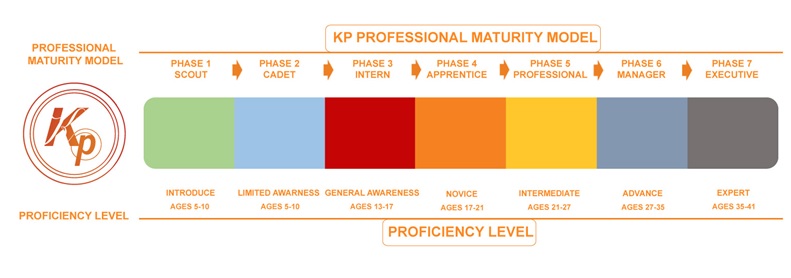Portfolio Manager for Human Talent: The Way to Fix A Leaking Talent Supply Chain
In US Chamber Foundation site as well as Forbes, I described the benefits of a Talent Supply Chain. I also likened the leakage in the Talent Supply Chain to spoilage and theft at a grocery store. This leakage is preventing us from finding workers for the 3.5 million jobs projected to go unfilled in 2021. For us to reach this goal, I pointed out employers’ critical role as stakeholders in an integrated K-12 system.
Schools are employers’ pools of future talent. There is no way to understate the significance of this relationship to our national success. Yet it seems both sides are challenged in fully acknowledging and investing in this codependent tie-up. In particular, they ignore or underrepresent the need for the experiential learning employers can provide through programs like summer youth employment and registered apprenticeships, both of which school leaders should welcome. These are just two approaches that were discussed. Another component of the approach that I did not have space to mention is the Talent Advisor’s role.
Talent Portfolio Manager: High Demand Careers
If we are going to fill outstanding job opportunities, particularly within high-demand fields such as IT and higher-end manufacturing, we will need more innovation. It’d be hard to argue this innovation won’t pay off for the individuals targeted. According to ZipRecruiter, the average salary for a cybersecurity engineer is almost $120,000 per year, with entry-level starting at over $50,000, and senior positions commanding nearly $200,000. It’s estimated there are over 500,000 open cybersecurity positions.
On top of the significant current salaries, the Cybersecurity field is expected to grow 31 percent -- much faster than average. -Bureau of Labor Statistics,
Talent Development Pipelines

Just one example of Kinetic Potential’s innovation is its targeted approach to creating a Talent Development Pipeline for both K-12 students and veterans. Aside from the philosophical desire to give back to those who have given us so much, veterans are a key targeted population because of their otherwise robust training discipline, which is coupled with the understanding of security and risk issues that were inherent in their service. KP’s core idea is to train these veterans in cybersecurity, and then employing them as Cybercamp mentors and tutors for high school students at Kinetic Potential Cyber after school camps. The veterans get an immediate way to apply their newly-trained skills. The students gain access to disciplined and focused instructors.
KP Connect Cybersecurity Training

The foundation courses cover basic cybersecurity concepts, ethics, laws, risks, threats, and online safety. By the end of the boot camp, the student should be ready to prepare for the CompTIA Security+ and CompTIA Network+ exams through lectures and hands-on instruction. Every KP Cybercamp apprentice will experience training, including significant hands-on activities and security simulation activities, before joining our team for on-the-job training exercises. Transitioning veterans may possess cybersecurity-related technical skills and experience, embody a commitment to the mission of protecting the Nation, and represent a relatively diverse population.
This kind of approach is consistent with the US Chamber of Commerce Foundation’s Talent Pipeline Management (TPM) initiative. It’s just one of the core elements of KP’s formula for success in talent development. We will write more about how to track and continuously improve using data and metrics, and how the TPM serves as a framework for evaluating success and improvement in an informed talent development supply chain.
The Foundation believes that this “orientation toward education and workforce partnerships in which employers are much more than advisors or beneficiaries” will lead us in the right direction. What TPM provides “is a systematic framework for how employers can engage effectively in producing information, facilitating partnerships, managing performance, and improving outcomes in career pathways."
To do this well, we need to use data more efficiently. We need data to sort out what students can benefit most from which career pathway; we need data to follow students through the program and monitor outcomes. In this way, we can continuously improve the program--knowing which inputs work best with what kinds of students. Successful job placement should not be random, and with the help of both the Talent Advisors working alongside Career Pathways, we can satisfy the needs of both workers and employers.








Putting Veterans Back to Work
Veterans bring a wealth of knowledge to the civilian workforce from their time spent in the military. It's great to hear that Kinetic Potential is offering employment opportunities as mentors and tutors for the Kinetic Potential Cyber after school program. This will allow Veterans to learn a new skill as well as showcase their natural leadership capabilities that employers look for in the workplace.
The U.S. Department of Affairs states that "Veterans continue to struggle to gain employment because of culture gaps between civilian society and their military pasts." As KP continues to find ways to give back to the community, the company has a vested interest in the lives of those that have sworn to protect us and the nation. As mentors, students will be gaining knowledge from someone with a strong work ethic. This quality as well as their global perspective brought into the classroom are invaluable.